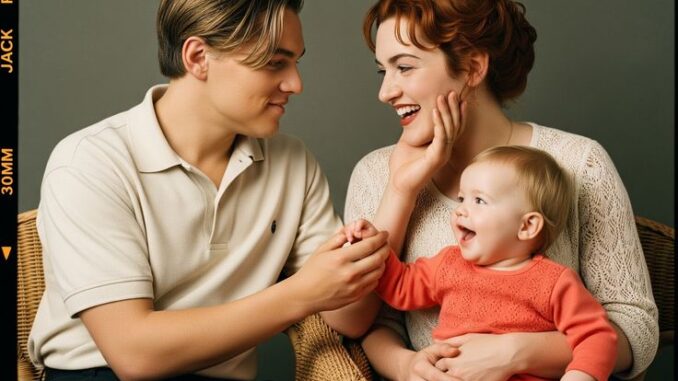
The Phantom Punch: What Jack’s Deleted Fight Tells Us About Storytelling and the Enduring Heart of Fandom
Titanic. The name alone conjures images of a sprawling grand staircase, a frost-kissed deck, and the poignant, star-crossed love of Jack Dawson and Rose DeWitt Bukater. James Cameron’s epic, a cinematic behemoth, has been etched into the global consciousness as the quintessential romantic tragedy. Yet, even in such a meticulously crafted masterpiece, there exist whispers of alternative realities, unshot scenes, and the quiet ghost of deleted footage. Among these spectral moments, one in particular has long captured the imagination and stoked the disappointment of fans: a deleted scene where Jack, our charming artist and lover, engages in a raw, visceral fight with another character.
The very idea sends a ripple through the film’s established narrative. Jack Dawson, as we know him, is a drifter with a golden heart, a quick wit, and an undeniable artistic talent. He’s the embodiment of freedom and passion, a foil to Rose’s gilded cage. To imagine him in a physical altercation, a clash of fists and gritted teeth, hints at a grittier, perhaps more complex side. The rumored scene, often cited as a fight with his Italian friend Fabrizio over the infamous naked portrait of Rose, adds a dimension of male camaraderie strained by desire and artistic ownership. It paints Jack not just as a sensitive soul, but as someone capable of defending his work, his honor, or even his burgeoning claim on Rose, with a fierce, primal instinct.
So, why the director’s scalpel? Filmmaking is an art of omission, a constant dance between necessity and desire. Every frame, every line of dialogue, must serve the overarching narrative. For a film of Titanic‘s magnitude, where the primary focus is the sweeping romance against the backdrop of an impending disaster, any scene not directly propelling the central love story or the ship’s tragic trajectory becomes a potential candidate for the cutting room floor. Cameron, a master storyteller, likely recognized that a street brawl, however indicative of Jack’s past or protective instincts, might momentarily disrupt the delicate balance of the burgeoning romance. It could jar the audience, pulling them away from the tender glances and whispered confessions that were the film’s emotional core. The fight, in its raw physicality, might have threatened to make Jack too rough, too common, tarnishing the idealized image of the romantic hero he needed to be for Rose, and for the audience.
Yet, fans, in their passionate and often obsessive engagement with beloved works, mourn the loss. The disappointment isn’t merely a desire for “more screen time” for Leonardo DiCaprio, but a gnawing sense of incomplete portraiture. For decades, Titanic has been rewatched, analyzed, and adored, and with each viewing, the depth of its characters is explored anew. The deleted fight offers a tantalizing whisper of what could have been – a Jack less pristine, more hardened by life on the road, a man who knows how to use his fists as well as his charm. It’s the appeal of the “what if,” the alternate path, the road not taken. This phantom limb of the narrative promises an enriched understanding, a character with broader emotional range, perhaps even a subtle foreshadowing of the sheer will to survive that Jack exhibits in the icy waters.
The enduring fascination with this deleted scene illustrates a fundamental truth about how we engage with stories. We don’t just consume them; we inhabit them. We become armchair editors and alternate-reality dreamers, pondering the myriad choices that culminate in the final cut. The disappointment over Jack’s excised fight isn’t a critique of Cameron’s genius, but rather a testament to the character’s profound impact and the audience’s insatiable hunger for completeness. It demonstrates that even a seemingly minor, absent moment can resonate for decades, highlighting the delicate balance filmmakers strike between their artistic vision and the collective imagination of a devoted fandom. In the end, the phantom punch of Jack’s deleted fight serves as a powerful reminder: the stories we love are not just what’s on screen, but also the tantalizing echoes of what might have been, forever shaping our understanding and our desires.
